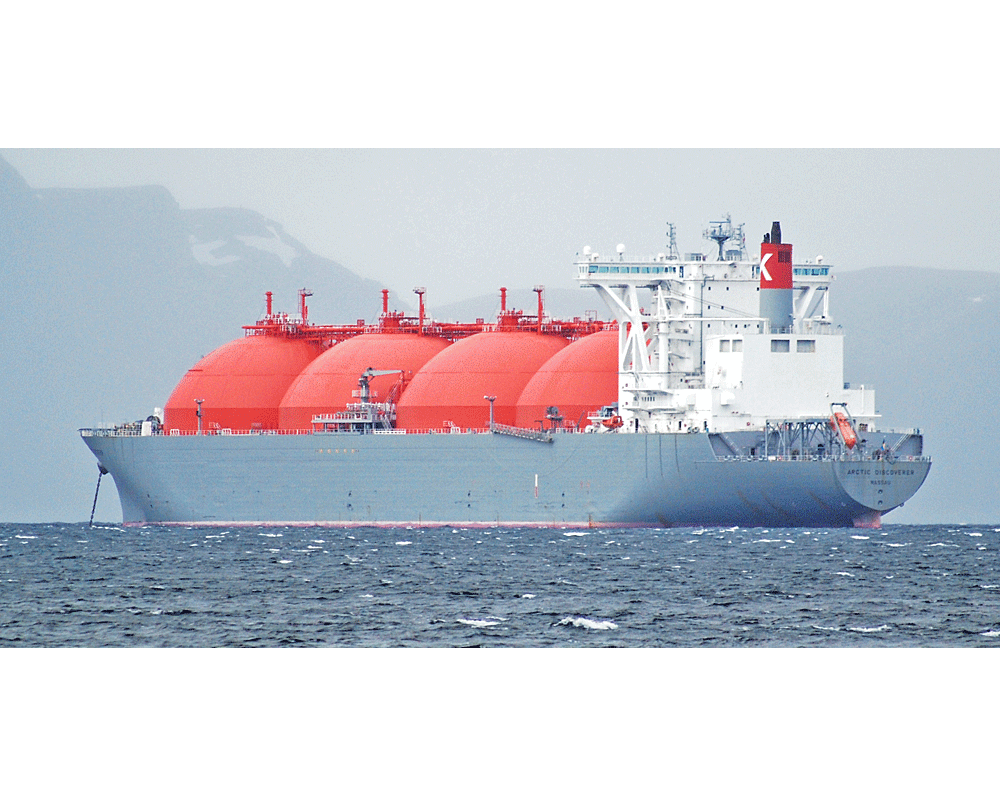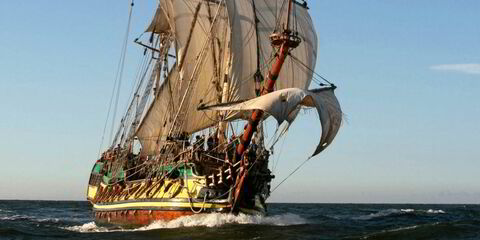The question of whether the financing arrangements for the 143,000-cbm Arctic Discoverer and Arctic Voyager (both built 2006) qualified for a 25% write down allowance has major commercial implications for the vessels built to transport gas from the Statoil’s Snohvit field in the Barents Sea.
The validity of the tax allowances turned on the question of whether a main objective of the complicated transactions surrounding the financing of the two Arctic water vessels was to obtain the allowances.
Norway’s Storting approved the award of the gas transport contract to K Line which ordered the vessels from Mitsui Engineering & Shipbuilding and Kawasaki Heavy Industries.
There was then a novation agreement, with Lloyd’s TSB Equipment Leasing becoming the purchaser of the vessels.
A 30 year head lease on the vessels was then granted to a company, Northern LNG, along with a time charter novation agreement under which K Line fixed the vessels on 20 year bareboat charters to a K Line company called K Euro.
Subsequently K Euro’s LNG business was transferred to K Line LNG Shipping (UK) with other transactions affecting K Line’s bulk shipping, container operation and car carrier business.
Detailed and complex financial security arrangements were also put in place to safeguard the flow of payments between all the parties.
The UK tax authorities decided that the overall result of these arrangments meant the deal did not meet the conditions required to qualify for the allowances.
But Lloyds TSB Equipment Leasing appealed and won a ruling that the financing arrangements qualified from first tier tax tribunal judges Edward Sadler and Adrian Shipwright.
The UK taxman however took the case to the appeal courts and has now won a unanimous ruling from Lord Justices Rimer, Patten and Kitchin that the tribunal misdirected itself and its decision despite a “painstaking, meticulous and comprehensive” assessment of the issues cannot be allow to stand.
K Line had no previous experience of UK finance leases and relied on advice from consultants New Boston Partners and the Watson Farley Williams law firm who said that a bona fide UK shipping company was required to meet the requirements.
To qualify for the capital allowances it was necessary that the vessels should be operated and managed in a suitable UK leasing structure.
The tax tribunal found that although K Line related entities were intent on obtaining the commercial benefit of the writing down allowance it was not the paramount objective with each of a chain of transactions having a commercial putpose
"Although the first tier tribunal was no doubt entitled to find that each transaction in the relevant series served a genuine commercial purpose, it does not follow that the obtaining of the capital allowances was incapable of also being a main object of the transactions, even if it was not the main object of the transactions,” declared Lord Justice Rimer.
“Even if each of the transactions was entered into for a genuine commercial purpose, it may still be the case that a main object of structuring them in the way they were was to obtain the capital allowances,” the judge added.
Rimer said that the tax tribunal decision “cannot be allowed to stand” and remitted the matter back to Sadler and Shipwright for re-consideration with Lord Justices Patten and Kitchin concurring.
Click on the judgments in the related media column to the right to read the appeal court and the original tax tribunal rulings in full.



